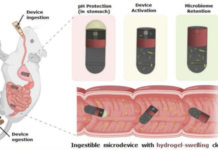NEW DELHI– Widely used painkillers like ibuprofen and acetaminophen may be quietly accelerating one of the world’s most urgent health crises — antibiotic resistance — according to new research from the University of South Australia.
The study, published in npj Antimicrobials and Resistance, found that the two drugs not only drive resistance individually but amplify it when combined. Researchers examined how the medications interact with ciprofloxacin, a common broad-spectrum antibiotic, and the bacterium Escherichia coli (E. coli), which often causes gut and urinary tract infections.
The results showed that ibuprofen and acetaminophen significantly increased bacterial mutations, enabling E. coli to grow faster and develop high levels of resistance to ciprofloxacin. Even more concerning, the bacteria also displayed resistance to multiple other classes of antibiotics.
“Antibiotic resistance isn’t just about antibiotics anymore,” said lead researcher Rietie Venter, Associate Professor at UniSA. “This is especially prevalent in residential aged care facilities, where older people are prescribed multiple medications — not just antibiotics, but also drugs for pain, sleep, or blood pressure — creating an ideal breeding ground for gut bacteria to become resistant.”
The researchers used patient-derived bacterial models to test how exposure to ciprofloxacin alongside the painkillers increased genetic mutations. The findings highlight how non-antibiotic drugs may unintentionally contribute to resistance, complicating efforts to curb the spread of drug-resistant infections.
“This doesn’t mean we should stop using these medications,” Venter stressed. “But we need to be more mindful about how they interact with antibiotics — and that includes looking beyond just two-drug combinations.”
The study underscores the need for greater caution in prescribing multiple medications, particularly in aged care, where residents often rely on long-term drug regimens. (Source: IANS)













